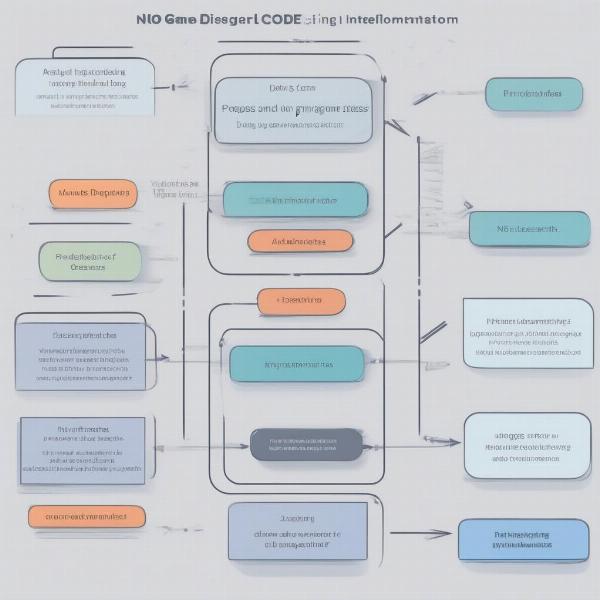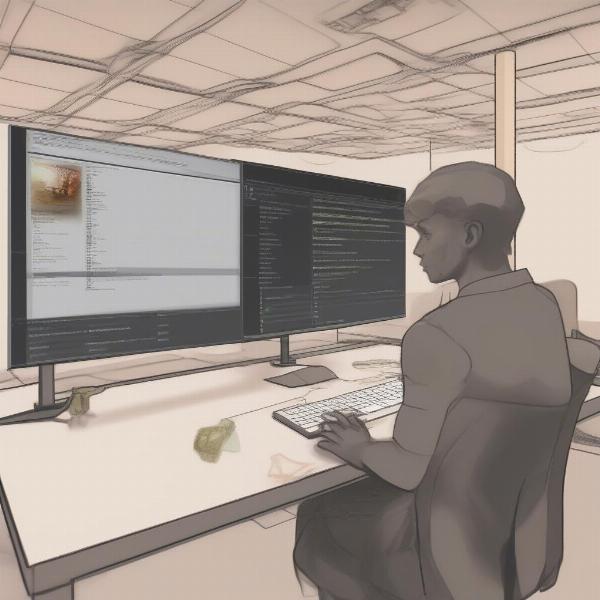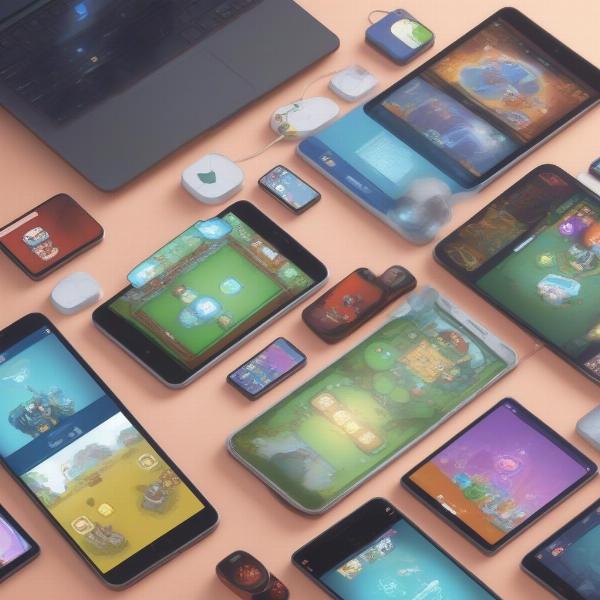Creating your own video game might seem like a daunting task, reserved for those fluent in programming languages. But the truth is, you don’t need to be a coding wizard to bring your game ideas to life. There are plenty of accessible and powerful game development tools that empower anyone, regardless of technical background, to create a game without coding. From simple mobile games to complex RPGs, the possibilities are vast and exciting. This guide will walk you through the various methods and resources available, empowering you to embark on your game development journey.
After this guide, you’ll understand how accessible game creation has become, thanks to the diverse tools and resources available. So, are you ready to turn your game concept into a reality? Let’s dive in! Similar to learning how to make sprite game, building a game without code relies on visual interfaces and pre-built functionalities.
Choosing the Right Game Engine for No-Code Development
The first step in creating a game without coding is selecting the right game engine. A game engine is the software framework that provides the tools and functionalities for building your game. Several excellent no-code and low-code game engines cater to beginners.
GameSalad
GameSalad is a popular choice for creating 2D games without coding. Its drag-and-drop interface and visual logic system make it incredibly user-friendly. You can create games for various platforms, including iOS, Android, and HTML5.
Buildbox
Buildbox is another powerful no-code game engine specializing in mobile game development. It focuses on creating games quickly and easily, with a streamlined workflow and intuitive interface. Buildbox even offers monetization features to help you earn revenue from your creations.
GDevelop
GDevelop is a free and open-source game engine that utilizes a visual event editor to create game logic. This makes it accessible even to those completely new to game development. GDevelop supports exporting games to multiple platforms, including Windows, macOS, Linux, and the web.
Designing Your Game: From Concept to Reality
Once you’ve chosen your game engine, the next step is designing your game. This involves defining the core gameplay mechanics, creating characters and environments, and developing the story (if applicable).
Defining Gameplay Mechanics
Start by outlining the fundamental rules and interactions within your game. What actions can players perform? How do they interact with the game world? Clear and engaging gameplay mechanics are crucial for a compelling game experience. This resonates with discussions on how many games are there in the world as each unique mechanic contributes to the vast landscape of gaming experiences.
Creating Characters and Environments
Bring your game world to life by designing visually appealing characters and environments. Many game engines offer built-in asset libraries or integrations with external asset stores, allowing you to easily find or create the visual elements you need.
Developing the Story
If your game includes a narrative, develop a compelling story that engages players and enhances their experience. A well-crafted story can add depth and meaning to your game. Just like understanding don’t quote me game, storytelling is key to creating memorable gaming experiences.
 Game Design Process without Coding
Game Design Process without Coding
Bringing Your Game to Life: Implementing Game Logic
With your game design in place, it’s time to implement the game logic. No-code game engines typically utilize visual scripting or event-based systems, allowing you to define game behavior without writing any code. These systems use intuitive interfaces to connect actions and reactions, creating the rules and interactions that drive your game. Learning How To Create A Game Without Coding is about mastering these visual tools.
Visual Scripting
Many no-code engines use visual scripting, a graphical representation of code. You connect blocks or nodes representing different actions and conditions to create the logic that governs your game. This approach is often easier to grasp than traditional coding.
Event-Based Systems
Other engines utilize event-based systems, where you define actions that occur in response to specific events within the game. For example, you could define an event that triggers when the player collides with an enemy, causing the enemy to lose health.
Testing and Refining Your Game
Thorough testing is essential for ensuring a polished and enjoyable game experience. Play through your game repeatedly, looking for bugs, glitches, and areas that need improvement. Gather feedback from others and iterate on your design based on their input.
Alpha Testing
Conduct alpha testing with a small group of testers to identify early issues and gather initial feedback.
Beta Testing
Expand your testing to a wider audience with beta testing, allowing more players to experience your game and provide valuable feedback. This broader perspective helps uncover hidden bugs and usability issues.
 No-Code Game Development: Testing and Refinement
No-Code Game Development: Testing and Refinement
Publishing and Sharing Your Game
Once you’re satisfied with your game, it’s time to publish and share it with the world. No-code game engines often provide streamlined publishing options for various platforms, making it easy to get your game into the hands of players.
Choosing the Right Platform
Consider your target audience and the type of game you’ve created when choosing a publishing platform. Mobile platforms like iOS and Android are popular choices, as is web publishing via HTML5.
Monetization Strategies
If you’re looking to earn revenue from your game, explore monetization strategies such as in-app purchases, advertisements, or premium pricing. Many game engines offer built-in tools to help you implement these strategies. Similar to exploring how do you create a video game for free, understanding monetization is vital for long-term sustainability.
Expanding Your Game Development Skills
Creating a game without coding is just the beginning. As you gain experience, you can explore more advanced features and techniques to enhance your game development skills. Many online resources, tutorials, and communities offer support and guidance for aspiring game developers.
Alternative Approaches: Low-Code Solutions
While no-code game engines are excellent for beginners, low-code solutions offer more flexibility and control for those willing to dabble in a bit of scripting. These platforms often combine visual scripting with scripting languages like JavaScript or Lua, allowing you to create more complex game mechanics. For example, if you want to know how to play rpg maker games on android you might find that some coding knowledge is helpful, but no-code tools can still bridge the gap.
 Publishing and Sharing a No-Code Game
Publishing and Sharing a No-Code Game
Conclusion
Creating a game without coding has never been easier, thanks to the powerful tools and resources available. Whether you’re a complete beginner or an experienced game developer looking to explore new approaches, no-code game engines offer a fantastic entry point into the exciting world of game development. So, unleash your creativity, experiment with different game mechanics, and bring your game ideas to life – no coding required!
FAQ
-
What is the easiest game engine to use for beginners with no coding experience? Engines like Buildbox and GameSalad are specifically designed with intuitive interfaces for beginners.
-
Can I create 3D games without coding? While most no-code engines focus on 2D game development, some emerging platforms are beginning to offer 3D capabilities.
-
How can I monetize my no-code game? Many no-code engines offer built-in monetization options, including in-app purchases, advertisements, and premium pricing.
-
Are there any free no-code game engines available? Yes, GDevelop is a popular free and open-source no-code game engine.
-
Where can I find resources and tutorials for no-code game development? Numerous online communities, forums, and tutorial websites offer support and guidance for no-code game developers.
-
What are the limitations of no-code game development? While no-code engines are incredibly versatile, they may have some limitations compared to traditional coding, particularly regarding complex game mechanics or highly customized features.
-
Can I publish my no-code game on major app stores? Yes, most no-code game engines allow you to publish your games on platforms like the Apple App Store and Google Play Store.

